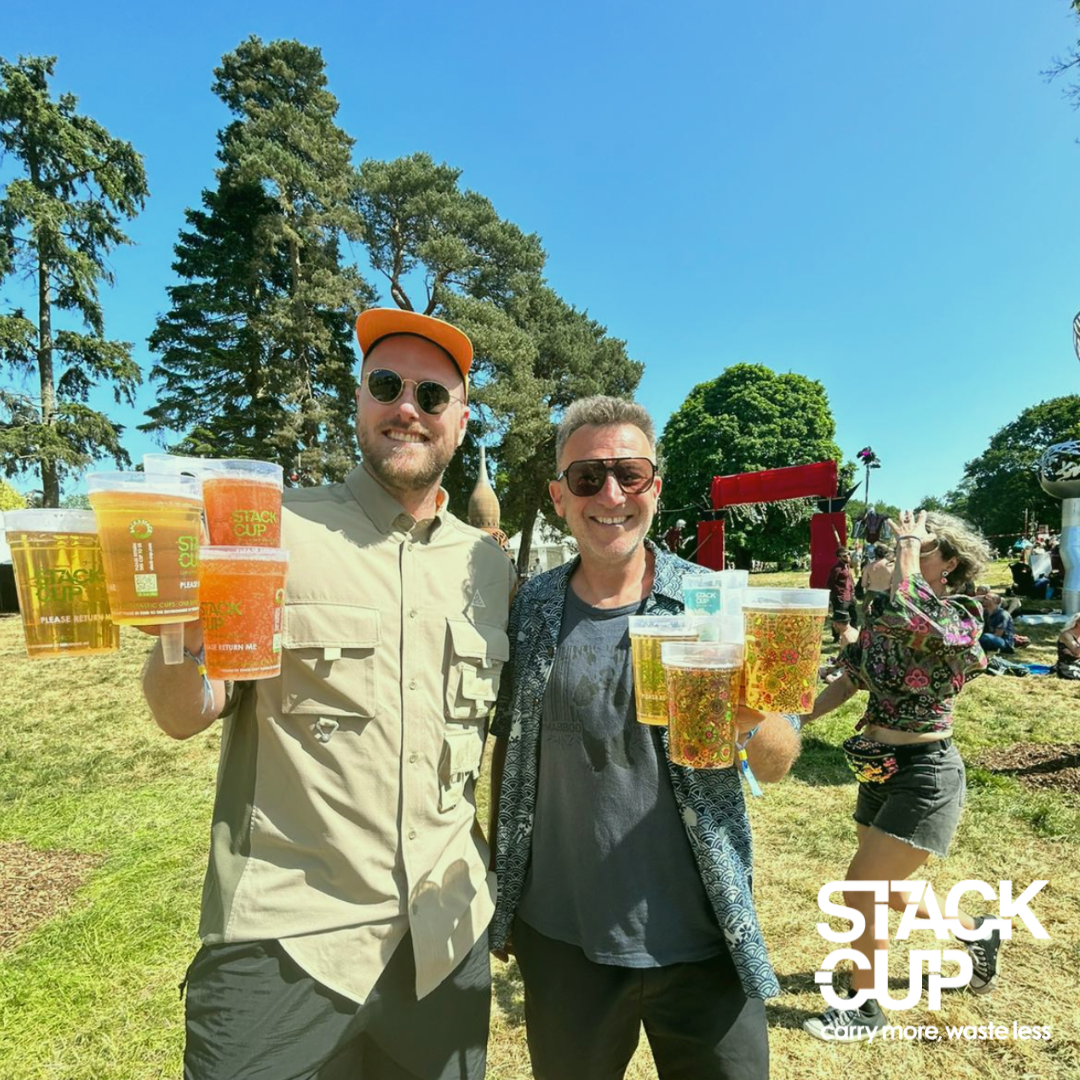
Single Use Plastic Waste at Events: It's Time to Take it Seriously!
It’s time to get serious about the plastic crisis.
Single-use plastic waste at events is a significant environmental issue that requires our immediate attention. That’s why STACK-CUP™ work with events like concerts, festivals, conferences, and sporting events to help reduce unnecessary amounts of plastic and waste.
Waste including plastic cups, bottles, food containers, cutlery, and other disposable items often ends up in landfills or, even worse, in our oceans and natural ecosystems - This causes pollution, harms wildlife, and contributes to the global plastic crisis.
Festivals are one of the largest contributors to plastic waste being sent abroad (yes, you heard that right!) and as the events industry continues to grow, it’s an Event Managers responsibility to do their part for the environment. Now more than ever, many Event Managers are looking for ways to make their events greener.
When it comes to your businesses reputation, the environmental footprint of your events has been deemed one of the most important factors. Environmental violations will influence the public’s perception of an event and reputation risk is increasing due to the rise of social media influences, where bad news spreads very quickly. A bad reputation can be extremely damaging and will affect your event dramatically, from a decrease in attendance and support from sponsors. It can also look like your business has weak regulations and management in place, not only affecting the image but also planting doubt about the people within the organisation.
What is the biggest problem with single-use plastic?
Plastic pollution can alter habitats and natural processes, reducing ecosystems' ability to adapt to climate change, directly affecting millions of people's livelihoods, food production capabilities and social well-being. Millions of tons of plastic leak into our waters each year due to large quantities of single-use plastic being consumed and mismanaged. Once in the environment, plastic pollution breaks into microplastics through sun exposure and weathering.
Why should you care?
With greener events becoming more popular, a number of festivals are banning single-use plastic altogether (YAY). Including the UK’s largest festival, Glastonbury. In recent years, Sir David Attenborough himself has appeared on the main stage during the festival to speak to thousands of people about the importance of going plastic free and its effect on our planet. With popular festivals taking their first steps to being plastic free, you don’t want your event to fall behind and gain a bad reputation with your out-dated waste management policies.
Did you know that Stack-Cup is the ONLY reusable cup brand that completely eradicates single use? We are proud to be the GREENEST Supplier in the industry!
What can you do?
- Conduct a waste audit: Before planning an event, organisers should assess the types and quantities of waste generated in previous events. This helps identify the specific areas where single-use plastics are most prevalent and allows for targeted reduction strategies.
- Develop a plastic reduction policy: Create a comprehensive policy that outlines the event's commitment to reducing single-use plastics. Set specific goals, such as eliminating plastic straws, cups, and cutlery, and provide guidelines for vendors and attendees to follow.
- Promote reusable alternatives: Encourage attendees to bring their own reusable items, such as water bottles, coffee cups, and food containers. Provide incentives, like discounts or freebies, to motivate participation. Or partner with a reliable reusable cup provider
- Implement waste management strategies: Place clearly labeled recycling and composting bins throughout the event venue. Train staff and volunteers to guide attendees on proper waste disposal and sorting. Work with waste management partners who specialise in recycling to maximise the amount of waste diverted from landfills.
- Provide water refill stations: Install water refill stations to encourage attendees to refill their reusable bottles. This reduces the need for single-use plastic water bottles and helps promote hydration.
- Educate and raise awareness: Use various communication channels to educate attendees about the environmental impact of single-use plastics and the event's commitment to reducing waste. Display signage, provide information on the event website or app, and include sustainability messaging in event materials.
- Engage sponsors: Encourage event sponsors to align with the event's sustainability goals. Request that sponsors avoid single-use plastic promotional items or opt for reusable and eco-friendly merchandise.
- Measure and communicate impact: Track the amount of single-use plastic waste reduced or eliminated from each event. Share this information with attendees, stakeholders, and the public to showcase the event's commitment to sustainability and inspire others to follow suit.
By implementing these measures, you, as an event organiser can significantly reduce the amount of single-use plastic waste generated at events and inspire attendees to adopt more sustainable practices in their daily lives. It's time to take this issue seriously and work together to create a more environmentally friendly event industry. Speak to STACK-CUP™ today: info@stack-cup.com
